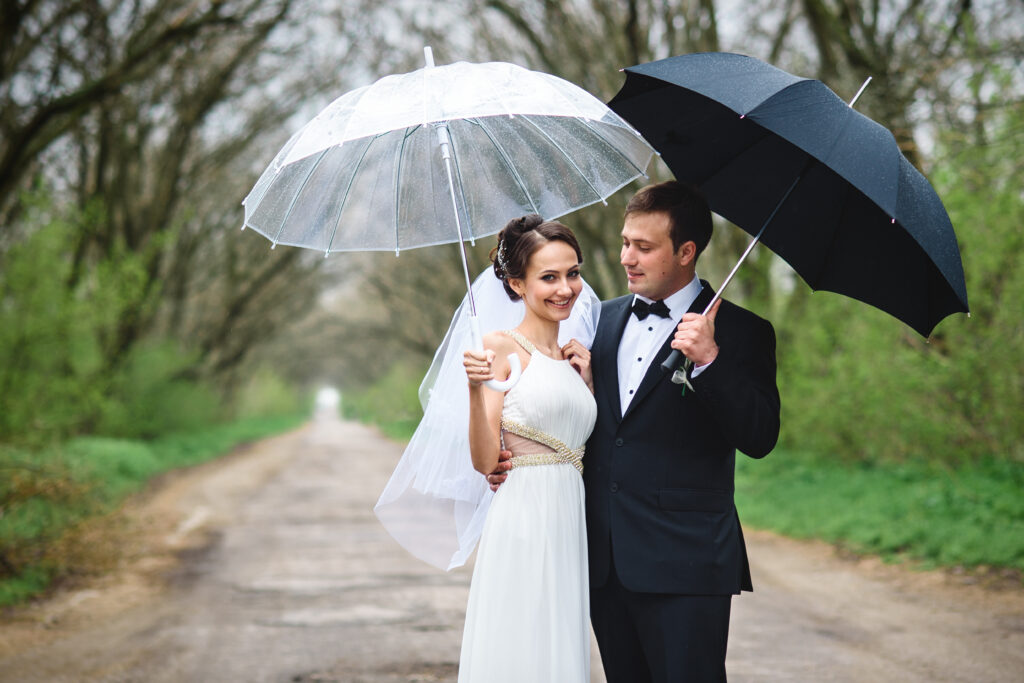Planning your dream wedding is one of the most exciting times in your life—but even with the most meticulous planning, things can still go wrong. From natural disasters and venue cancellations to vendor no-shows and dress mishaps, unexpected problems can turn your big day into a big headache. That’s where wedding insurance comes in.
Whether you’re hosting an intimate ceremony or an extravagant celebration, wedding insurance offers a safety net that helps you recover financially if things go off-script. In this guide, we’ll break down everything you need to know about wedding insurance: what it is, how it works, what it covers, and how to decide if it’s right for you.
What Is Wedding Insurance?
At its core, wedding insurance is a special event insurance policy designed to protect your investment in the event of unforeseen circumstances. It can reimburse you for certain losses and expenses related to your wedding, whether due to cancellation, postponement, property damage, or liability issues.
Wedding insurance is typically available in two primary forms: liability insurance and cancellation insurance. These policies can be purchased separately or bundled, depending on your needs.
What Does Wedding Insurance Cover?
Wedding insurance policies vary by provider, but most include the following types of coverage:
1. Venue Issues
If your wedding venue becomes unavailable due to damage, closure, or a double booking, insurance can reimburse you for deposits and rescheduling costs.
2. Weather Disruptions
Severe weather—like hurricanes, snowstorms, or wildfires—that prevents key people from attending the wedding (including the couple) may be covered. This includes the cost of rescheduling your wedding day essentials, such as catering, florals, and rentals.
3. Vendor No-Shows
If a contracted vendor (like your caterer, photographer, or DJ) fails to show or fulfill their obligation, insurance can help you recover your deposit and additional expenses incurred when securing a last-minute replacement.
4. Injury or Illness
If a close family member, such as a parent or sibling, becomes seriously ill or injured just before the wedding, your policy may cover postponement costs. Note that pre-existing conditions are generally not covered.
5. Lost or Damaged Items
Some policies include protection for wedding attire, jewelry, and gifts if they’re lost, stolen, or damaged before or during the event.
6. Liability and Property Damage
This includes bodily injury or property damage that occurs during your wedding. If a guest gets hurt or causes damage to the venue, liability coverage can help cover legal and medical expenses.
What Isn’t Covered?
While wedding insurance is comprehensive, it doesn’t cover everything. Most notably, it won’t reimburse you if the wedding is canceled due to a change of heart (i.e., cold feet), unless you’ve purchased a rare and specific “change of heart” policy in advance.
Additionally, while some policies may protect your wedding rings, engagement rings often require a separate jewelry insurance policy. Be sure to read your policy’s exclusions carefully.
Types of Wedding Insurance
There are two main types of wedding insurance:
1. Wedding Liability Insurance
Liability insurance protects you from financial responsibility if there’s an accident or property damage during your wedding. It’s often required by venues and can cover:
- Guest injuries
- Damage to venue property
- Alcohol-related incidents
You can often add rehearsal dinner coverage to this policy.
2. Wedding Cancellation/Postponement Insurance
This policy protects the investment you’ve made in your wedding in case you have to cancel or postpone due to:
- Severe weather
- Sudden illness or death in the family
- Military deployment
- Vendor failure
It can reimburse you for non-refundable deposits and rescheduling costs.
How Much Does Wedding Insurance Cost?
Costs vary depending on coverage levels, your location, and the size of your event. Here’s a general breakdown:
- Liability Insurance: ~$75 to $200 for up to $1 million in coverage.
- Cancellation Insurance: Starts around $75 and can exceed $500 for high-budget weddings.
- Combined Policies: Many insurers offer bundled packages that include both liability and cancellation coverage.
It’s important to choose coverage based on the total value of your wedding budget. If you’re spending $30,000 on your wedding, consider insuring that full amount.
Is Wedding Insurance Worth It?
Absolutely—especially if your event involves significant expenses or is taking place in a high-risk area (weather, travel, etc.). Wedding insurance provides peace of mind by protecting your financial investment and ensuring that a hiccup doesn’t turn into a full-blown disaster.
Ask yourself:
- Are we booking a venue in hurricane, fire, or snow-prone areas?
- Are we relying on non-refundable vendor contracts?
- Are we hosting a destination wedding?
- Are our families traveling in for the event?
- Are we investing heavily in décor, attire, or entertainment?
If the answer is yes to any of these, insurance is likely a wise decision.
Real-Life Scenarios: When Wedding Insurance Saved the Day
1. Ice Storm Disaster Jordan and Blake planned a beautiful winter wedding, but a sudden ice storm made the reception site inaccessible. Their insurance covered the cost of rescheduling everything—from catering to attire.
2. A Dress in Flames Brittany’s veil caught fire just moments before walking down the aisle. Luckily, her insurance covered a replacement and rush tailoring costs.
3. Pandemic Woes A global pandemic canceled weddings worldwide. Couples with insurance were able to recoup thousands of dollars in nonrefundable deposits.
When Should You Buy Wedding Insurance?
The sooner, the better. Some policies require you to purchase coverage at least 14 days before the event. Ideally, you should buy wedding insurance as soon as you start signing contracts or putting down deposits. This ensures you’re covered for anything that may happen months before the big day.
Tips Before You Buy
- Check Vendor Coverage: Ask each vendor for their Certificate of Insurance (COI). You don’t want to pay for overlapping coverage.
- Check Your Existing Policies: Some homeowner or renters’ insurance plans offer limited event coverage.
- Review Contracts Carefully: Make sure your contracts outline refund policies in the event of cancellation or postponement.
- Shop Around: Compare quotes from multiple providers. Coverage and pricing vary widely.
Recommended Wedding Insurance Providers
Here are some trusted companies offering wedding insurance:
- eWed Insurance – Affordable, flexible coverage options for cancellation, liability, and vendor no-shows.
- BriteCo – Fast online quotes, including jewelry protection.
- Travelers – Broad coverage with optional add-ons for illness and extreme weather.
- WedSafe – Over two decades of experience with event insurance tailored to weddings.
- Wedsure – Offers “change of heart” coverage (if purchased early enough) and next-day policy availability.
- Geico & Progressive – Affordable options for basic liability and cancellation plans.
- Allstate & USAA (via Markel) – Great for military families and destination weddings.
Final Thoughts
You insure your car, your home, and your health—so why not your wedding? While no one wants to imagine something going wrong on their wedding day, being prepared for the unexpected is a smart move. Wedding insurance helps you enjoy your celebration knowing that if disaster strikes, you won’t be left footing the bill.
For the relatively small investment, the peace of mind it provides is priceless.

